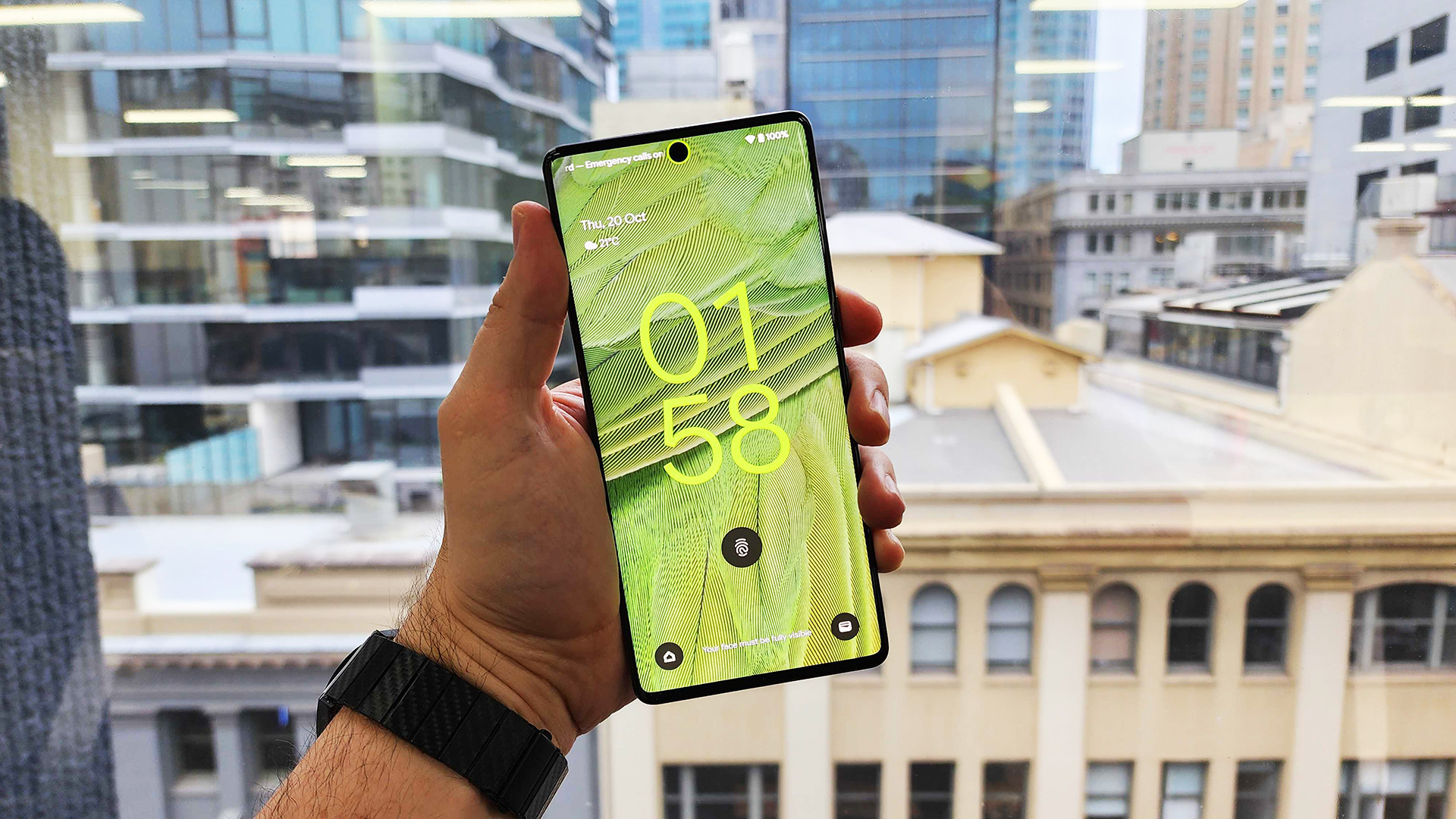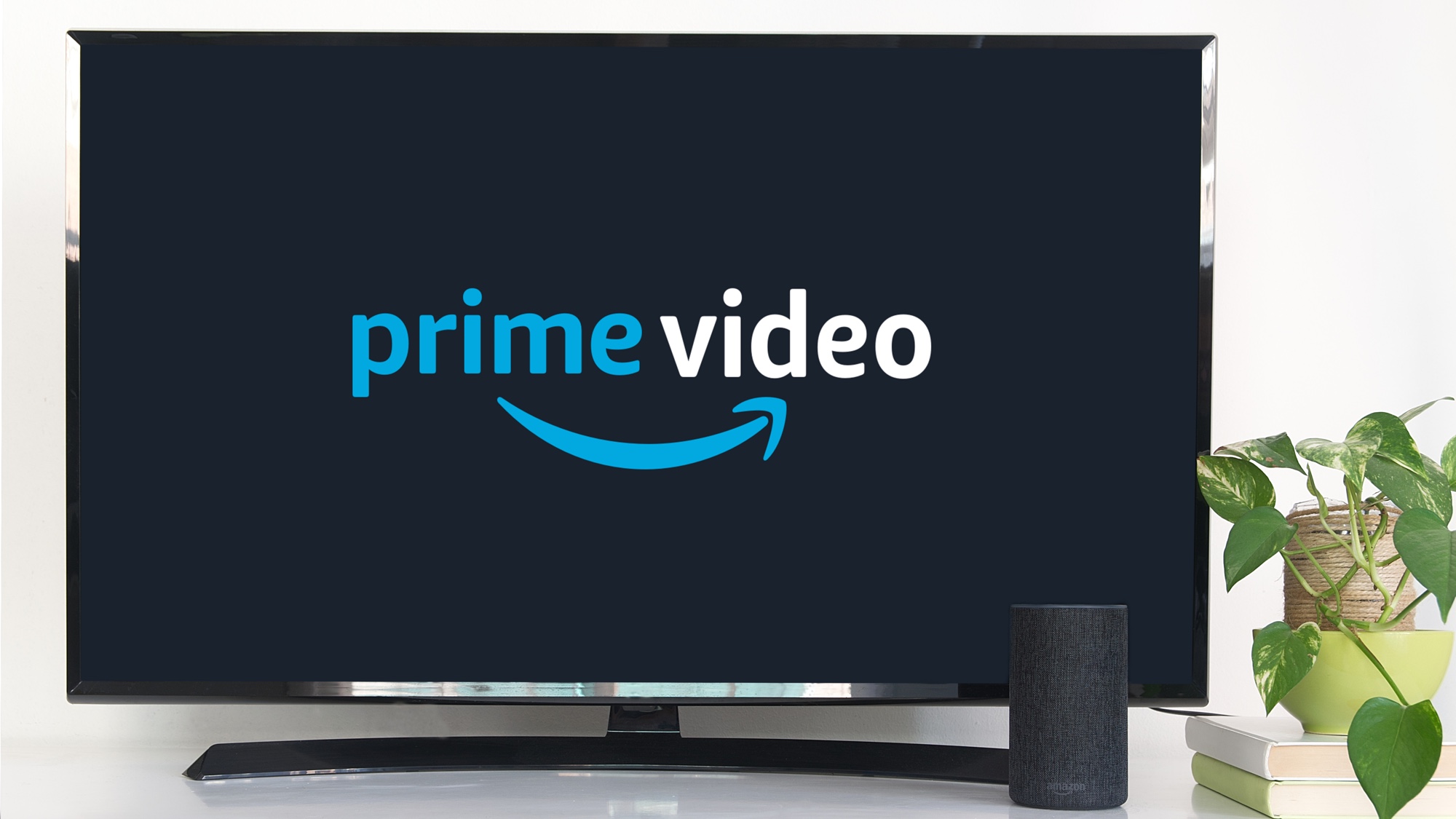I love my Galaxy S22 Ultra, but the Pixel 7 Pro has me considering switching
Four reasons to switch, and two things that are holding me back

If you're anything like me, Google's new Pixel 7 and Pixel 7 Pro handsets have finally caused you to sit up and pay attention to what the search giant is doing in the smartphone realm.
Don't get me wrong — the Pixel 6 range was impressive, but there's one specific thing about the new Pixel 7 lineup which has finally hit the nail on the head for me, and that's its design.
I'll be honest: design is probably the most important aspect of a phone to me. The more premium a phone looks and feels, the better. Though my job calls for me to test many smartphones throughout the year, I almost always end up coming back to whichever Android phone feels the most high-end. Most recently, that's been Samsung's S22 Ultra.
However, that may change thanks to the Pixel 7 Pro, which in my opinion has finally seen the Pixel brand's design catch up to the same high level as its software.
Of course, that's just one of the reasons why Google's Pixel 7 Pro has me considering switching from my current daily driver — there are a few others which also have me tempted, along with a couple of other things which are still holding me back.
Reasons to switch to Pixel 7 Pro
It finally feels like a high-end phone
While it's true that Google's new flagships are very much a refinement of what came before, the changes that were made in this year's models finally bring them up to high-end flagship level for me.
Both new models sport the same distinctive 'visor' camera bar that was introduced last year, only now Google has ditched the phone-wide glass bar in favour of a metallic one (matte on the Pixel 7 and glossy on the Pixel 7 Pro) which runs seamlessly into the device's aluminum frame. It not only gives each Pixel 7 a more deluxe appearance, it also provides a more resilient camera bar that's less likely to shatter.
Get instant access to breaking news, the hottest reviews, great deals and helpful tips.
And while color preference is purely subjective, I completely appreciate the classy new color options on offer with the Pixel 7 line, particularly when it comes to the near-black Obsidian model. It just looks so much nicer than the two-tone grey option offered by the Pixel 6 Pro last year, which I found to be unusually drab.
Photo Unblur is a game-changer
One Tensor-powered feature that's exclusive to Google's new flagship handsets is Photo Unblur, and it's so good that it may very well justify a Pixel 7 purchase all on its own.
Imagine being able to fix any blurry photo you've ever taken — not just photos snapped on the phone itself — but literally any saved photo in your Google Photos image library.
Now, there is a limit to how much fixing it can do, but for the most part, we found the new feature was able to salvage many of the blurry images in our Google Photos library. And, at the very least, it was able to sharpen up the ones that were unsalvageable.
The Tensor hype is justified
The aforementioned Photo Unblur feature is just one brilliant example of what makes Google's phones different from the rest — its software and hardware work together in perfect unity to provide an outstanding user experience.
By leveraging Google's second gen Tensor chip, the Pixel 7 range is able to mostly skirt expensive hardware upgrades by finding software and AI-driven solutions for most tasks.
The Pixel range has been doing this for years with its cameras, and the new Tensor G2 chip takes things even further.
For example, the Pixel 7's ability to analyze speech patterns means it offers the most outstanding speech-to-text functionality that we've ever seen from a smartphone, and it's all thanks to machine learning.
Its speech recognition is even smart enough distinguish between two people having a conversion, automatically labelling transcribed text by each individual. This may not mean a great deal to everyone, but for a journalist like myself, it's a godsend.
Software-based face unlock
That thing we mentioned earlier about software solutions for hardware-centric tasks? The Pixel 7 range's new face unlock feature is a perfect example of that.
Security is obviously very important to Google, which is why the last few Pixel handsets have completely opted to avoid face unlock functionality.
That said, the search giant has chosen to include it on its Pixel 7 range, and it's managed to do so without a huge iPhone-style notch or cutout by leveraging its machine learning smarts in place of an additional 3D infrared camera.
Granted, you still won't be able to make purchases with your face alone, but it's more secure what other Android manufacturers are offering, so I still a consider it a welcome alternative unlock method.
Sadly, battery life hasn't improved
When the Pixel 7 lineup was announced, I was hopeful that the new Tensor G2 would provide a significant uptick in battery life. Unfortunately, while I've seen a slight improvement over last year's models, the amount of usable time between charges continues to be a problem for Google's flagship handsets.
During everyday usage, I've found the Pixel 7 Pro's battery to drain faster than expected, often needing to be topped up around dinner time. In our Pixel 7 Pro battery tests, the handset still fell short of the competition — in some instances by a significant margin — and the regular Pixel 7 performed worse still. Hopefully, Google will be able to alleviate this shortcoming in future updates.
Some software and UI quirks still bug me
As great as the overall experience of Pixel's user interface is, there are some missing features which bug me as a long-time Samsung (and previously, Huawei) user. As someone who doesn't like swipe gestures, it bothers me immensely that you can't reorganize your navigation bar.
I've gotten used to the 'back' button being on the right side, and the 'recents' button being on the left. The fact that you can't change this on Pixel phones is utterly baffling to me, as it would be the easiest option in the world to offer.
Additionally, while Pixel phone's offer access to a Safe Folder for increased file protection, it simply doesn't compare to Samsung's Secure Folder, which allows you to install duplicate apps. That means you can install clone versions of apps for work or private purposes which are protected by Samsung Knox's defense-grade security — a feature which is incredibly welcome for those who don't have a separate work phone.
Pixel 7 Pro bottom line
While Google has come to the table with a number of hardware upgrades this year, particularly when it comes to cameras, it's what's under the hood that really sets the Pixel 7 range apart. I'm talking, of course, about Google's new Tensor G2 chip, which once again capitalizes on the search giant's AI and machine learning smarts to make the software experience even more seamless.
That's not to say the Pixel 7 range is entirely perfect. There are still a few things about the Pixel experience that irk me as a long time Samsung users. That said, there have been enough big improvements made in this year's models for me to seriously consider making the switch to the ultimate Google phone.

Stephen Lambrechts is the Managing Editor of Tom's Guide AU and has written professionally across the categories of tech, film, television and gaming for the last 15 years. Before Tom's Guide, he spent several years as a Senior Journalist at TechRadar, had a brief stint as Editor in Chief at Official Xbox Magazine Australia, and has written for such publications as APC, TechLife Australia, T3, FilmInk, AskMen, Daily Telegraph and IGN. He's an expert when it comes to smartphones, TVs, gaming and streaming. In his spare time, he enjoys watching obscure horror movies on physical media, keeping an eye on the latest retro sneaker releases and listening to vinyl. Occasionally, he also indulges in other non-hipster stuff, like hiking.
 Club Benefits
Club Benefits





